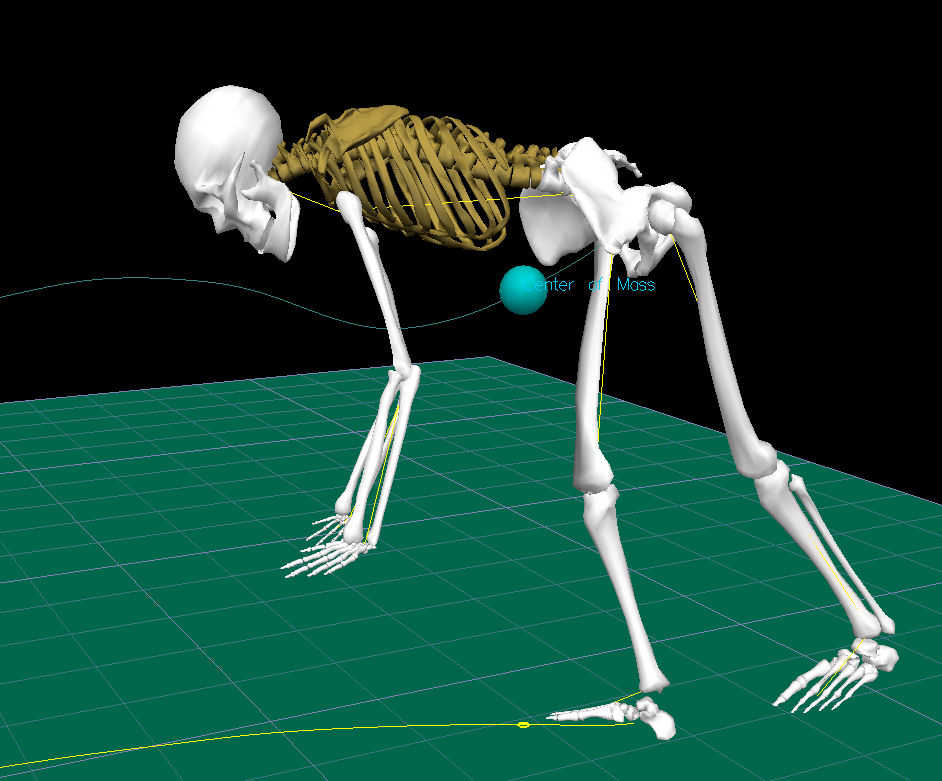38 Center of Gravity
Finding the Center of Gravity
You may have heard the term center of gravity in reference to balance and you might intuitively know that a toddler’s big head raises their center of gravity, which makes them less stable than adults. We already know that the force of gravity is what gives an object weight, but what is the center of gravity? Think about which body part you feel gravity pulling on. Do you feel it pulling on just your leg, or your arm, or what? Actually, the force of gravity acts on all of your mass in the same way, according to Newton's Universal Law of Gravitation down to every single molecule and atom. If we break up your body into many many small chunks of equal mass we could calculate the tiny force of gravity on each one. If we add up all those tiny forces we get your total weight. If we average the locations of all those equal tiny forces, the resulting location would be the center of gravity. If we averaged the location of all the equal chunks of mass that would be the center of mass. Everyday objects, like humans, are small enough that gravity acts uniformly on all parts of the object and the center of gravity and the center of mass are essentially the same location. Check out the following video to learn how to experimentally find the center of gravity (mass) of an irregular object.
Reinforcement Exercises
Balance
Being out of balance means that your center of gravity is no longer above your support base (usually the space between your feet). When that happens you either fall down or take a step to widen your support base (regain your balance). Let’s examine why those are the only two options you have.

Freely rotating objects tend to rotate around their center of mass. The following video shows a neat demonstration of that phenomenon:
https://youtu.be/DY3LYQv22qY
- "COM" by D. Gordon E. Robertson, Wikimedia Commons is licensed under CC BY-SA 3.0 ↵
a point at which the force of gravity on body or system (weight) may be considered to act. In uniform gravity it is the same as the center of mass.
attraction between two objects due to their mass as described by Newton's Universal Law of Gravitation
the force of gravity on on object, typically in reference to the force of gravity caused by Earth or another celestial body
every particle attracts every other particle in the universe with a force which is directly proportional to the product of their masses and inversely proportional to the square of the distance between their centers
a point representing the mean (average) position of the matter in a body or system
in a way that is the same in all cases, across a defined set of space and times
region defined by lines connecting points of contact with the supporting surface

